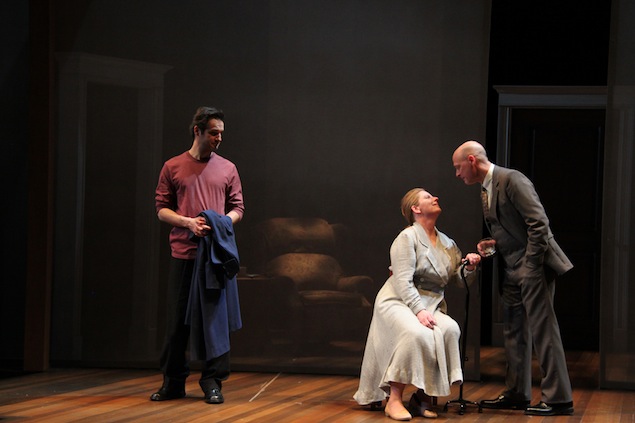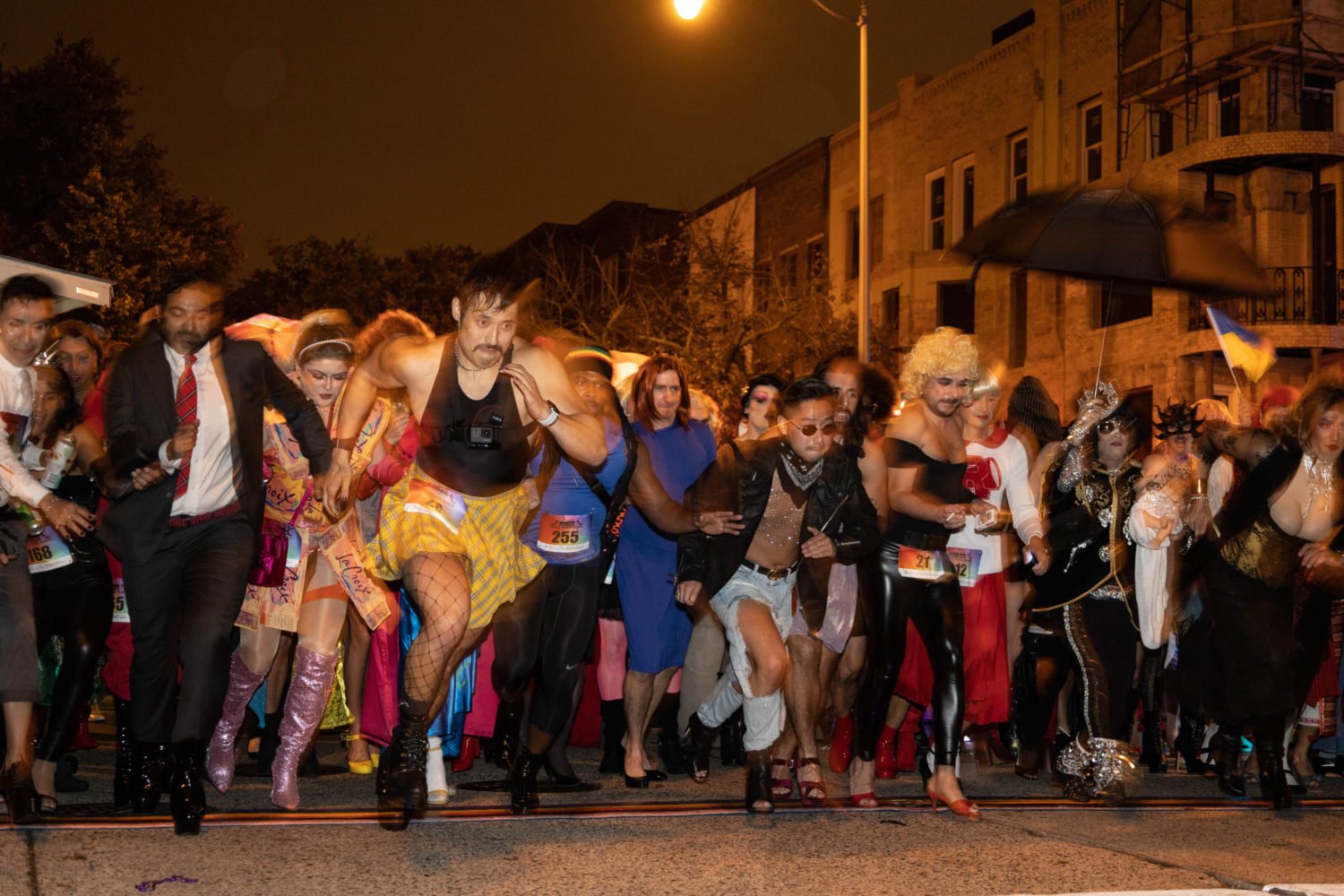
It takes a special kind of talent and a special kind of subject to make art out of
a memoir.
Bill Cain has both.
How to Write a New Book for the Bible, currently having its East Coast premiere at Round House Theatre, is the third of
Cain’s plays to run in Washington in the past two years (following
Equivocation at Arena Stage and
9 Circles at Forum Theatre), and it might be the most powerful and moving yet. Employing deft
writing skills and a sharp sense of humor, Cain explores the universality of the human
condition through his family, drawing on life, death, love, and faith with the wisdom
of a prophet, the insight of a shrink, and the wry comedy of a sitcom character perpetually
bewildered by those closest to him.
Cain is no sitcom character: He is, in fact, a Jesuit priest, although ironically
enough for a play that frames itself as an attempt to contribute to the good book,
his personal faith and calling is barely touched upon.
Bible, which is new Round House artistic director
Ryan Rilette’s directorial debut with the theater, stars
Ray Ficca as Bill (or “Billy” to his parents),
Danny Gavigan as his brother, Paul,
MaryBeth Wise as his mother, and
Mitchell Hébert as his father. At the beginning of the play, Bill is obliged to find a way to tell
his 82-year-old mother she has six months to live, and the rest of the action unfolds
through flashbacks, zipping between scenes from the past and present, narrated by
Bill as he confronts the reality of his own loss.
Anyone who’s lost a parent to illness or old age can empathize with the instinct to
try to find meaning in the achingly slow demise—the upside-down awkwardness of caring
for someone who once cared for you, and the multitudes of indignities and heartaches
that arise from such a protracted, preposterous process. Rilette strikes the perfect
balance between humor and pathos, illustrating petty family squabbles and dynamics
with a masterly touch. Bill, the “smart one” to his jock brother, fumes as he’s expected
to drop everything and care for his mother because he’s a writer, which she tells
him isn’t a real job; and he recalls incidents from childhood that feel painfully
familiar, such as his heartbreak when at eight years old he selected the perfect pumpkin
for Halloween only to drop it moments later. “My brother and I both thought our lives
were ruined by the book
The Little Engine That Could,” he tells the audience, in a reference to his mother’s infernal commitment to persistence.
The play is anchored by its four leads, each of whom shines in different and difficult
ways. Ficca often has to play the straight man to his quirkier relatives, but his
frustration is engaging and comical to watch. Wise has the most demanding role, flitting
between physical frailty and her much younger self at a moment’s notice. Her performance
toward the end of the play, when her character is morphine-addled, hopeful, and doomed,
is extraordinary. Gavigan has a strength and maturity as Paul that makes him almost
unrecognizable from his other recent roles in Signature Theatre’s
Really
Really and Constellation’s
The Legend of
Zorro. Hébert, always a delight to watch, steals scenes in flashbacks as Bill’s charming,
kindhearted father but also in multiple side roles as a doctor, a physical therapist,
and a (female) hairdresser.
The design elements of the play are also pitch-perfect, particularly
Colin K. Bills’s lighting, which sets scenes and flips moods in a powerful yet subtle way. When
Bill and his brother take a road trip to visit the Vietnam Veterans’ Memorial, they
stand in a stark orange spotlight on a blue background, a moody white light representing
moonlight behind them. It’s a reminder of how effectively lighting can communicate
an environment and complement a scene.
Rosemary Pardee’s costumes double as props with which the actors can jump from one memory to another,
as does
Daniel Conway’s spare set, with moving parts to convey shifting moments in time.
This is an elegant debut for Rilette, and one that grasps the audience’s attention,
even if Cain’s meandering style does wander a little toward the end of the first act.
“As a writer, the Bible embarrasses me,” Bill says at one point in the play. “It begins
with bad anthropology and ends with bad science fiction.” No one could accuse this
playwright of either. The Book of Cain is a profoundly poignant, moving tribute, not
just to the writer’s family, but to the odd habits, quirks, and expressions of love
that make all families unique.
How to Write a New Book for the Bible
is at Round House Theatre through May 5. Running time is about two and a half hours,
with one intermission. Tickets ($26 to $63) are available via Round House’s website.
















